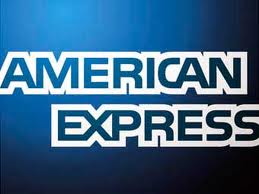
We lawyers love, love, love our formality, oft times filling pages with pretentious legalese. I’m sure that wax seals and red ribbons were invented by lawyers, to make doubly, triply sure that everything was authentic. And redundant.
And when seals and ribbons went by the wayside, wet ink signatures became the standard-bearer of authenticity.
Last week the Appellate Division (First Department) confronted the formality of signatures regarding a settlement. The court sought to answer a question: If lawyers agree to a settlement via our now ubiquitous email, but use a standard signature block instead of retyping their names, is a settlement valid?
In other words, what kind of seals and red ribbons do we now need?
While at first blush this looks like a small esoteric question of law regarding the informality of email and the courts’ respect for stipulations, it has the potential to carry over to a thousand different aspects of law as now practiced.
The fact pattern of The Matter of Philidelphia Insurance v. Kendall is not too complicated (if you practice personal injury law here in New York), but for the others a short background: The liability insurance you buy for your car is not for your injuries, but for the injuries of others in a collision. Thus, if the other person has only a $25,000 policy, you might be shit out of luck — a technical legal term — if you lost your leg. That’s why you buy Supplementary Uninsured/Underinsured Motorist (SUM) insurance. That part is for you. If the other driver has only $25K in insurance, and you have $1M, you can turn to your own insurer for the $975K difference.
And that’s what happened here. Kendall was clobbered in a collision. The motorcycle that hit her had only the 25K minimum but she had $1M in SUM. She collected the $25K from the other driver and proceeded to arbitration against her own insurer.
According to the decision, this funky fact-pattern popped up regarding the arbitrator’s decision and settlement with the arbitrator awarding the maximum 975K. But Kendall’s lawyer settled for only 400K because he hadn’t see the decision yet:
The arbitrator rendered her decision on September 16, 2019, awarding Kendall $975,000. The same day, the decision was emailed to Kendall’s counsel and faxed to Philadelphia’s counsel. However, neither counsel received the decision and they continued to negotiate. On September 19, 2019, the parties reached an agreement to settle the dispute for $400,000.
How did they shake hands on this deal? Via email:
On that day [Kendall’s] counsel emailed [Philadelphia’s] counsel: “Confirmed -we are settled for 400K.” Below this appeared “Sincerely,” followed by counsel’s name and contact information. Shortly thereafter, [Philadelphia’s] counsel emailed in reply, attaching a general release, styled a “Release and Trust Agreement,” and saying, “Get it signed quickly before any decision comes in, wouldn’t want your client reneging.” [Kendall’s] counsel answered, “Thank you. Will try to get her in asap.” This email concluded with the same valediction, name, and contact information as had [Kendall’s] counsel’s earlier email.
The lawyer for the injured Kendall then learned of the $975K decision and wanted to go back on the $400K agreement, arguing that it was’t “subscribed” as per CPLR 2104 by retyping his name in the email in addition to his prepopulated contact information block.
So, is the email agreement “in writing” as required by statute? If it sounds like a boring one-off kinda issue, you are not thinking of all those emails you send on a daily basis and how those might be viewed by a court.
Now previously, our Court of Appeals had held that a preprogrammed name on a fax transmission did not fulfill the subscription requirement. So email should be the same, right? (Parma Tile Mosaic & Marble Co. v Estate of Short)
The times, they are a changin’. A mid-level appeals court has now held that the old fax decision from New York’s top court is not controlling as the practice of law has changed:
The Parma court wrote in a different era, when paper records were still an important modality, maybe the most important modality, of recording information in law and business. Since that time, the electronic storage of records has become the norm, email has become ubiquitous, and statutes allowing for electronic signatures have become widespread. For these reasons, and those that follow, we find that Parma is not controlling.
While this very same court held in 2013 that “an email in which a party’s or its attorney’s name is prepopulated in the email is not sufficiently subscribed for purposes of CPLR 2104” it has now reversed itself and said “wet ink” signatures are not needed, nor is any retyped signature:
We now hold that this distinction between prepopulated and retyped signatures in emails reflects a needless formality that does not reflect how law is commonly practiced today. It is not the signoff that indicates whether the parties intended to reach a settlement via email, but rather the fact that the email was sent.
In fact, even the signature block doesn’t appear to be needed — it must only be sent from the lawyer’s account, forming a rebuttable presumption that the lawyer sent it:
We find that if an attorney hits “send” with the intent of relaying a settlement offer or acceptance, and their email account is identified in some way as their own, then it is unnecessary for them to type their own signature.
But wait, there’s more: It has been customary over the years for defendants and insurance companies to create ever more complex general releases and settlement agreements. Back in the day, the simple Blumberg form was the gold standard, until those that bill by the hour figured out there may be a bit more gold to be mined by creating ever more complex forms.
The First Department, however, found that the simple email was binding when the sole issue was the amount of the settlement. The digital handshake was good enough, and the formal release wasn’t particularly relevant as it is merely a ministerial condition:
The Release and Trust Agreement was to be further documentation of the binding agreement constituted by the parties’ counsel’s emails agreeing to settle respondent’s claim for $400,000, rather than something on which that binding agreement was contingent. The material term of the parties’ agreement to settle respondent’s claim being the sum of money that petitioner would pay respondent, respondent’s execution of a general release was essentially a ministerial condition precedent to payment (see CPLR 5003-a[a].
So, your emailed agreements will be held up the same as if they had a fancy wax seal and a red ribbon. And probably so too with any other assertion that you make. And those complex general releases that defendants like to waste time with may well be meaningless to a court.
Don’t think twice before hitting send. Think it though three times. Because “send” is your signature.


